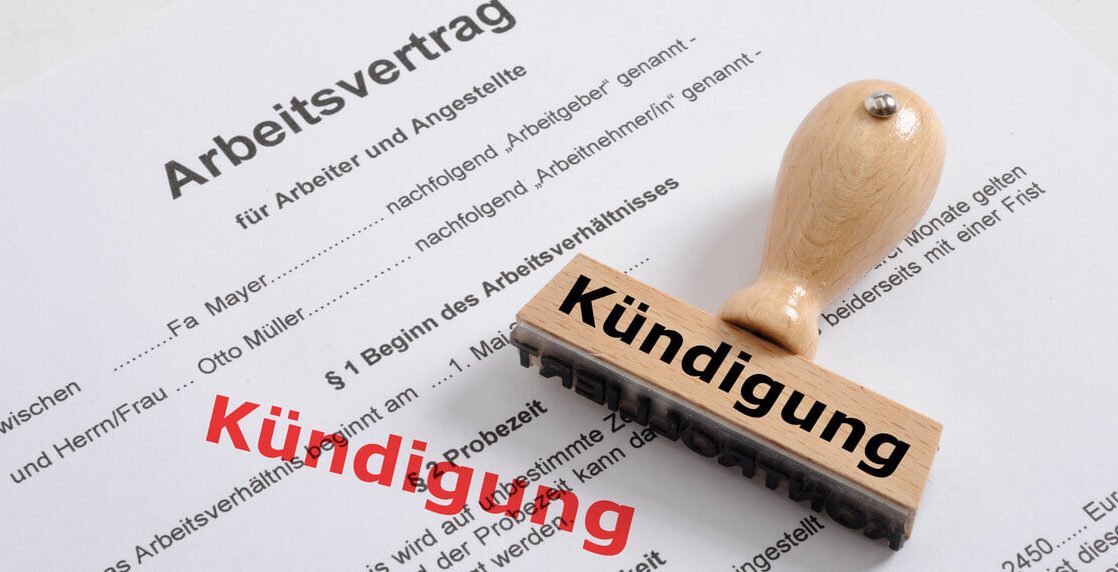

As long as an employment relationship is in place, employees are subject to a general non-compete rule (Wettbewerbsverbot) – but this doesn’t apply after the job ends. That is why companies, especially for executives, key employees, and those with access to confidential information, often agree on post-contractual non-compete agreements (nachvertragliches Wettbewerbsverbot). These agreements protect confidential information that the employee obtained while working at the company. The goal is to prevent this information from immediately reaching competitors after the employee switches jobs. In return for agreeing to a post-contractual non-compete, the employee receives compensation known as “compensation for non-compete” (“Karenzentschädigung”). A non-compete agreement (also: “competition clause”/Konkurrenzklausel) must include such compensation. Otherwise, the non-compete is invalid. In this blog post, we summarize the key legal requirements for post-contractual non-compete agreements, competition clauses, and compensation for non-compete, and give tips on avoiding disadvantages when ending your employment.
Inhalte
- Non-compete during Employment under German law
- After Employment: Joining a Competitor is Generally Allowed
- Exception: Post-contractual Non-compete Agreement
- Special Rules for Managing Directors
- When is a Non-compete Invalid?
- Impact of Termination on the Non-compete
- Non-compete in a Termination Agreement
- Contractual Penalties are Generally Allowed
Unfairly dismissed in Germany?
Check your severance pay now – you have only 3 weeks to preserve your severance package!
Non-compete during Employment under German law
While employed, the duty of loyalty (Treuepflicht) in the employment contract prevents the employee from competing with the employer or endangering their interests. This duty is established by the German Commercial Code (HGB) and applies to all employees, not just executives or key employees. Many employment contracts include specific rules for this, but the duty of loyalty still applies even if it’s not explicitly stated in the contract. Violating this duty can lead to termination and claims for damages. Permitted side jobs are different from competitive actions. However, working for (or owning a part of) a competing company is usually considered unauthorized and may justify immediate dismissal.
After Employment: Joining a Competitor is Generally Allowed
After leaving a job, employees are generally allowed to join a competitor or act as one. Even poaching customers or former colleagues is typically allowed. To better compete for qualified staff, companies can use post-contractual non-compete agreements, but these are often hard to enforce.
Exception: Post-contractual Non-compete Agreement
Employers can also forbid their employees from competing after the employment ends. However, these post-contractual non-compete agreements are subject to strict conditions. According to §§ 75ff. HGB and § 110 of the Trade Regulation Act (GewO), employers and employees can agree that the employee won’t conduct business in the same field as the former employer – neither on their own nor for a competitor.
*Requirements for a Post-contractual Non-compete Agreement
A post-contractual non-compete agreement (also: competition clause/Konkurrenzklausel) significantly restricts the employee and is subject to strict rules. For it to be valid, the following conditions must be met:
- Employer’s Business Interest: The employer must have a legitimate business interest, like protecting trade secrets or customer relationships.
- Reasonable Restrictions: The non-compete must be reasonable in terms of location, time, and scope, and not overly restrictive.
- Written Agreement: The non-compete must be agreed upon in writing.
- Maximum Duration: It can only last for up to two years after the employment ends.
- Compensation for Non-compete: The employer must pay financial compensation to cover the employee’s disadvantages due to the non-compete.
Special Rules for Managing Directors
Different rules apply to managing directors (Geschäftsführer) of a GmbH. Their non-compete agreements are handled in civil courts, not labor courts. The Federal Court of Justice (BGH) sets the rules here, not the Federal Labor Court (BAG), and the BGH has slightly different principles.
When is a Non-compete Invalid?
If an employee under a non-compete receives a good offer from a competitor, they might wonder if they can bypass the non-compete. It can last for up to two years after employment, which is often a “dealbreaker” for such offers. One option is to negotiate an early end to the non-compete, but employers are often unwilling to agree. In this case, the validity of the non-compete must be carefully checked based on the conditions mentioned earlier:
– A post-contractual non-compete without compensation for non-compete (Karenzentschädigung) is invalid. Compensation offsets the financial disadvantages caused by the non-compete. According to the Federal Labor Court (BAG), a non-compete without compensation is invalid, even if the contract has a severability clause (“salvatorische Klausel”). The compensation must be at least 50% of the employee’s last salary.
However, compensation alone does not make a non-compete valid. For employees (not managing directors), the non-compete is only valid if the requirements are met (employer’s business interest, reasonable restrictions, written agreement, maximum duration of two years).
Do you need help with German labor law?
Get a free initial consultation now – with an expert on German labor law!
Impact of Termination on the Non-compete
The validity of a non-compete also depends on the type of termination and who initiates it:
- Employer’s regular termination: The employee can choose whether to follow the non-compete and receive compensation or ignore it.
- Employer’s immediate termination: The employer can decide whether to enforce the non-compete with compensation or treat it as void without payment.
- Employee’s regular termination: The employee must follow the non-compete.
- Employee’s immediate termination: The non-compete becomes non-binding, and the employee can choose to either follow it and receive payment or ignore it.
Non-compete in a Termination Agreement
A non-compete is often agreed upon in a termination agreement (Aufhebungsvertrag). The same principles apply as if it were included in the employment contract. If the employer insists on a non-compete in the termination agreement, caution is advised. A valid non-compete greatly restricts the employee and should be carefully considered and reviewed with legal advice.
Contractual Penalties are Generally Allowed
To ensure the former employee follows the non-compete, a contractual penalty (Vertragsstrafe) may be included, according to § 75c HGB. The rules of the General Terms and Conditions Act (AGB-Recht) must be followed. If an employer wants to enforce a penalty against an employee, legal advice is strongly recommended.

Free initial consultation with a specialist lawyer
- 15min free initial consultation with a lawyer
- Prompt online appointment via Calendly or quick call-back
- Strategy for negotiating your severance pay






